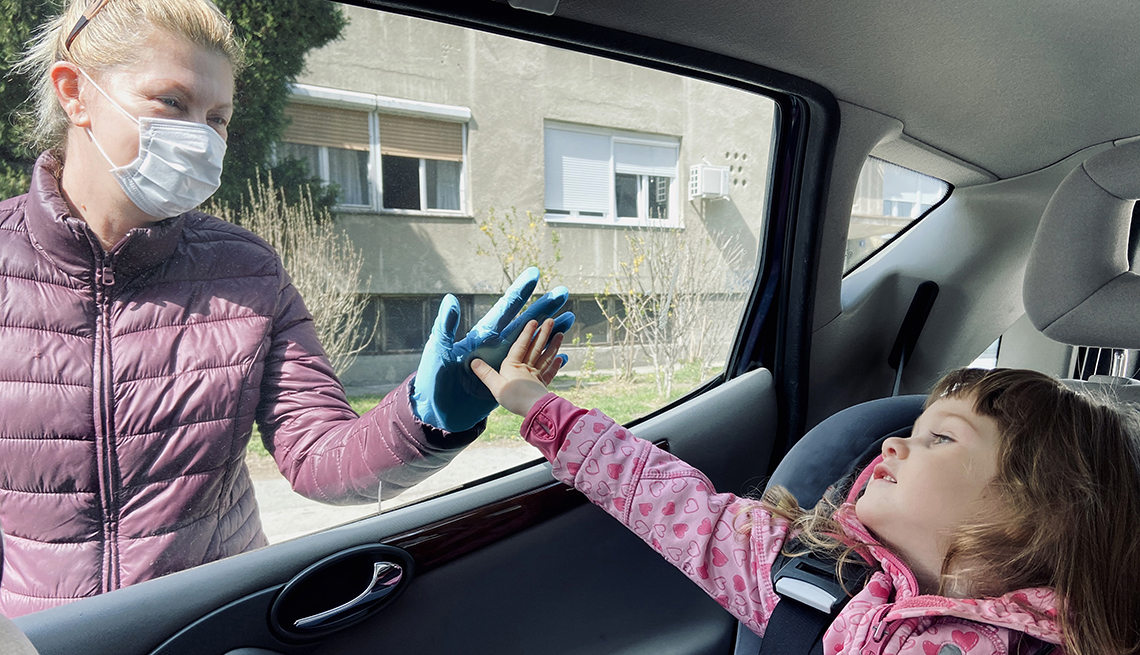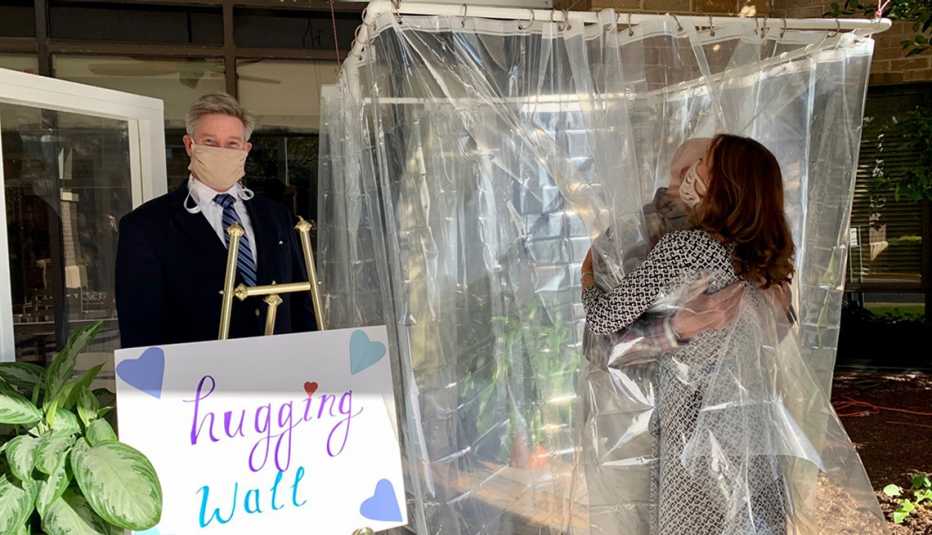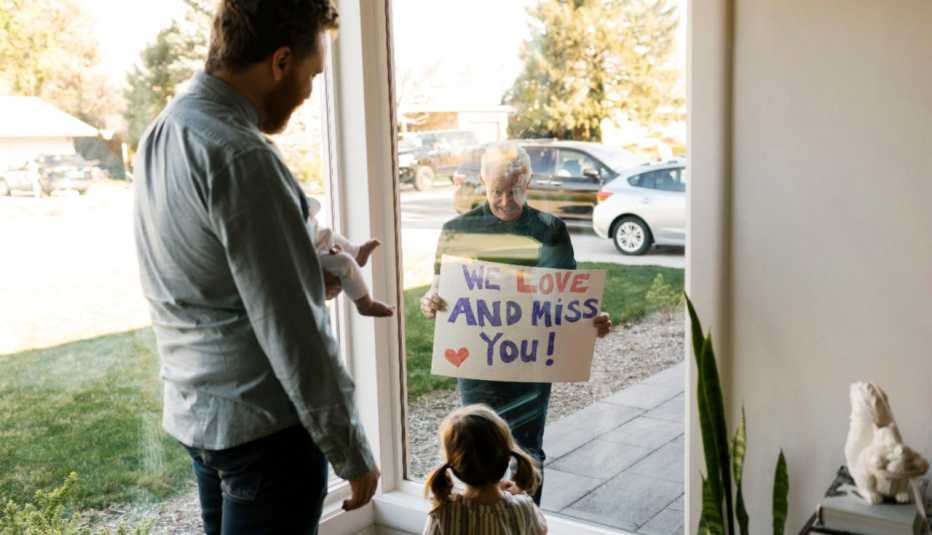Staying Fit
The Centers for Disease Control and Prevention (CDC) has released new guidelines that give fully vaccinated people the go-ahead to socialize — including with their grandchildren. And, in some cases, they can finally hug their family members without a mask.
The long-awaited guidelines apply to people who are fully vaccinated: that means two weeks after receiving the second dose of either the Pfizer-BioNTech or Moderna vaccine or two weeks after receiving one dose of the Johnson & Johnson vaccine.


AARP Membership— $12 for your first year when you sign up for Automatic Renewal
Get instant access to members-only products and hundreds of discounts, a free second membership, and a subscription to AARP the Magazine.
Key points from the CDC's new guidance for vaccinated people include:
- They can visit with unvaccinated people from a single household who are at low risk for severe COVID-19 disease indoors, without wearing masks or physically distancing.
- They should continue to practice prevention measures such as wearing masks and maintaining physical distance when visiting people who are at increased risk for severe COVID-19 disease or who have an unvaccinated household member who is at increased risk for severe COVID-19 disease, as well as with unvaccinated people from multiple households.
- They should continue to avoid medium-size and large in-person gatherings.
- They should continue to follow CDC advice to delay travel, because “travel increases your chance of spreading and getting COVID-19.”
- They should continue to follow the CDC's infection-control guidelines, including wearing masks and social distancing, while in public.
Here's what to know about your risk of getting or transmitting COVID-19 after you've been vaccinated (and the reasoning behind the CDC's new guidelines).
1. Once you are vaccinated, you have virtually no risk of getting a serious case of COVID-19.
The three vaccines currently in use in the U.S. are 100 percent effective in preventing hospitalization and death due to COVID-19. “Not even one person who got the vaccine [during trials] snuck through and got very sick,” says Monica Gandhi, M.D., a professor and infectious disease expert at University of California, San Francisco. “Not even one."
That means if you've gone through your full vaccine schedule — waiting two weeks after your second dose to allow your body time to build protection — you are more likely to get seriously ill from the regular flu than from COVID-19. “These vaccines are amazing,” Gandhi says. If you do get the virus, she adds, “it'll be a mild cold."
Some people are concerned that the vaccine won't protect them against new and more transmissible variants of the coronavirus, first identified in the U.K., Brazil and South Africa. While public health officials are concerned and are studying these strains closely, the vaccines being given in the U.S. appear to be remarkably effective against all variants, Gandhi says. The confusion about the issue may stem from the news that the one-shot Johnson & Johnson vaccine was less effective at preventing more moderate COVID-19 infection in South Africa; even so, it was still able to prevent 100 percent of hospitalizations.
2. Even if you're vaccinated, you may infect someone who is unvaccinated.
This is where the waters get muddy. There is a chance that even if you have been vaccinated, you could be an asymptomatic carrier of the coronavirus and infect someone who is unvaccinated.



































































